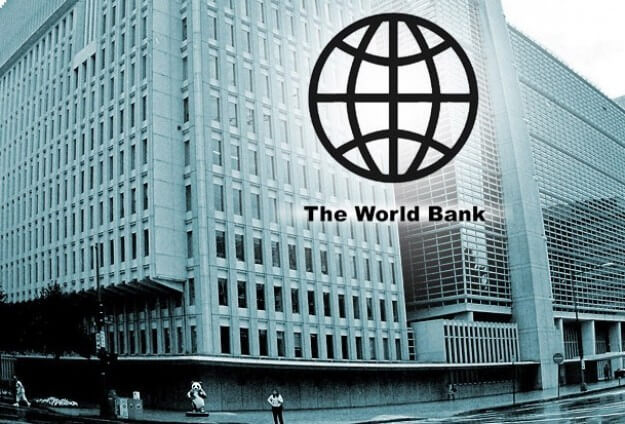News from the World Bank Is Good for Everyone But the Oil Companies

A spokesperson for the organization announced yesterday that it will end its financial support for oil and gas extraction within the next two years in response to the growing threat posed by climate change. Although the precise thinking behind the decision wasn’t made public, it’s fairly obvious: climate change exacerbates poverty. A business-as-usual approach to investment that includes fossil fuels is simply making the challenge the World Bank faces that much tougher; it would be like two fire brigades trying to extinguish a blaze, one squirting water and the other gasoline.
The World Bank had “ceased lending for coal-fired power stations in 2010 but has been under pressure from lobby groups also to halt the $1bn (£750m) a year it has been lending for oil and gas in developing countries.”
No more.
Additional good news: putting a spear through oil and gas isn’t enough; the World Bank is on course to have 28% of its lending going to climate action by 2020. Gosh, are there any climate action projects worthy of investment? Well, yes, there are things like solar PV, concentrated solar power, wind, run-of-river hydro, biomass, geothermal, energy storage, LED lighting, high voltage transmission, energy efficiency, electric transportation, smart grid, sustainable agriculture, farm-to-table, family planning, education (especially of women), child care, sustainable animal husbandry and fishing, water purification, waste management, recycling, and sustainable forestry. I guess there are a few….
The collateral benefits of all this are too numerous to name, but here’s one: educated, productive people are extremely tough to radicalize. Which young man would you guess is easier for ISIS to recruit: a) a poverty stricken, uneducated, hungry, sick kid with no hope and no future, or b) the same kid who’s healthy, productive, and eager to grasp a future full of promise?
In a world of so much suffering, occasioned by so much greed and ignorance, it sure is nice to see something good happening.


Interesting news indeed. Perhaps we’re seeing some impact from the shifting stances of insurance and asset management firms toward recognition of the rising damage and risk associated with humanity’s disruption of atmospheric content and global climate. This just might work to mitigate the World Bank’s reputation as a tool of empire. 🙂